Author Spotlight: T.O. Munro
Joining us for today’s Author Spotlight is T.O. Munro!
T.O. Munro works in education and enjoys nothing more than escaping into a good book. He wrote his first book (more novella than novel) aged 13, and has dabbled in writing stories for nearly four decades since then. A plot idea hatched in long hours of exam invigilation finally came to fruition in 2013 with the Bloodline trilogy, beginning with Lady of the Helm, and later followed by Wrath of the Medusa and Master of the Planes.
Find him on twitter @tomunro.
Thanks for joining us, T.O.! Let’s start small: tell us about a great book you’ve read recently!
There’s a couple of recent high spots, both of which I’ve written about on the Hive.
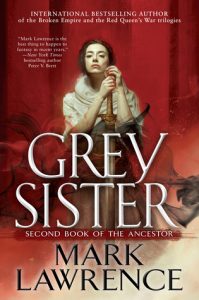 Grey Sister by Mark Lawrence which continues the showcasing of his remarkable writing talent – liquid prose effortlessly flowing through the reader’s imagination and setting off explosions of admiration.
Grey Sister by Mark Lawrence which continues the showcasing of his remarkable writing talent – liquid prose effortlessly flowing through the reader’s imagination and setting off explosions of admiration.
The Gospel of Loki by Joanne Harris, sort of as if Lord of the Rings had been written from Sauron’s perspective. The whole of Norse Mythology told from the lowest viewpoint. Just as few people find they look their most favourable when viewed from the lowest camera angles, so too the Gods of Valhalla are less than flattered by the trickster’s unique but humorous perspective.
Both of those books are indeed excellent. Okay, time to escalate things: reality warps and you suddenly find yourself leading a D&D-style party through a monster-infested dungeon. What character class are you, and what’s your weapon of choice?
I’d like to say magic-user – twisting the fabric of time sand space and directing arcane energy to suit my own purpose sounds like fun – plus fireworks! Who doesn’t like a big bang? Fireball was always the spell I must longed for in the various iterations of my D&D PC gaming (Anyone else remember the Ruins of Phlan?).
I couldn’t be a bard – I’m not allowed to sing at home even in the shower. Nor a ranger – no woodcraft of any sort – I can barely assemble an IKEA flatpack.
By nature I guess, I’m probably more of a cleric – you know the kind that runs around trying to heal people and saying “Do we really have to do this? Who actually enjoys having a confrontation?” Fantasy writing and reading is so different to real life!
It sure is! When you’re not trawling through dungeons, do you prefer to type or to hand-write? Why?
Oh god – type always, even if more often than not it’s typo. My handwriting is atrocious, there’s a period of about ten minutes after I’ve hand written something where I have a chance of deciphering what I’ve said – after that, no one, not even me can read it.
From my earliest story writing days (Hornblower novels when I was 13 or so) I typed them on this machine:
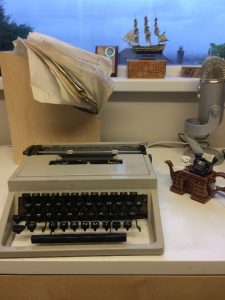
I am grateful that none of those works are electronically stored and so liable to leak into the outside world.
And how do you like to work – in silence, with music, or serenaded by the damned souls of a thousand dead shrimps?
Silence usually – multi-tasking does not come well to me. I like music, but I like to listen to it. That said, I have been experimenting with some very familiar songs hoping that they will just ruffle my subconscious into more bubbling creativity.
I’m curious though – what does shrimp soul music sound like? If it is anything like David Soul music then probably not!
Ahh… if you have to ask, you’ll never know. T.O., are you an architect or a gardener? A plotter or a pantser? D’you write in your underwear, or in a deep-sea diver’s suit?
I’ll have you know I’m an engineer. Architects may design castles in the sky but engineers make sure they stay there! Plot is an important part of my story telling, weaving mysteries, knowing the end game and trying to lead the reader on in ways they only recognise afterwards yet still making sure it all works and holds together. That fascination comes from another genre I’ve toyed with – Murder mysteries which are the epitome of plotting.
However, the plot is the skeleton – the climbing frame even – on which the protagonists get to display and develop their character. Character arcs are key for me. I like to torture my characters and the readers so a detailed understanding of plot is not the end in itself, but a mechanism for the real story – to paraphrase Bill Clinton, “It’s the people*, stupid.”
*people in this case means any sentient or quasi-sentient be they warm or cold blooded, human or humanoid or even a gestalt hive entity (a bit like your good selves).
So, tell us something unusual about your writing method!
Some people swear by Scrivener to organise their writing, others trust simply to Word – but I suppose my UWP (unique writing point) is how I use spreadsheets, in planning, plotting, and even world building.
Sure, there is listing the scenes in handy order, then there is working out the chronology of events, including characters’ ages at key plot points, and then there are the formulae to adjust for the differing rates at which time flows in different settings within my world. In my current WIPs there is a spreadsheet where I worked out the gravity strength and direction on different parts of a significantly oblate spheroid world. (This would make the flattened poles of this world effectively into very deep broad pits/valleys that people would walk or fall or roll down into – a veritable hell on Earth – or hell on Oblate as I am minded to call it.)
Ha! It sounds intriguing. What are your most significant non-book fantasy influences?
So, so many different things.
History – I have raided history extensively for inspiration, so many stories that beggar belief – both of people’s humanity and inhumanity, of the brilliance and stupidity of being human that jostle side by side through the centuries. Most of my battles and quite a few of my lines have been stolen from history – Horatio Nelson, the Wars of the Roses, ruthlessly plundered and adapted.
Films too – not just fantasy films. I have been inspired by moments and lines in films as diverse from Bridge Over the River Kwai, The Railway Children, and even Terminator 2: Judgement Day – iconic snippets of dialogue or action re-dressed in a different context. Some might call it stealing – but I prefer to think of it as paying homage.
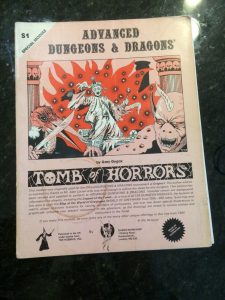
And I have to say though, that nobody has spotted any of those links yet – and sometimes still can’t see them even after they’ve been pointed out!
Dungeons and Dragons, too – not just its spells but Maelgrum the Lich and some of his soul stealing plane stalking persona is derived from AD&D module S1 – Tomb of Horrors – look, there’s even old Mr Ssssibilant himself on the cover!
Maps and Geography – I know that Geographistry can be a challenge to some people, but as G.R. Matthews would tell you – Geography has shaped history and it can shape and inspire fantasy. Every walled town I visit I want to build into a story, Conwy, Londonderry, Lasize. My most out-of-this-world map inspiration though was a relief map of Mars, which is the basis for my developing map in my WIP the world of Oblate, albeit with a town like Enniskillen planted in the middle of it.
I know Mark Lawrence’s broken empire map/milieu is essentially Europe with a 100 metre sea level rise, but what about the reverse? The era of the last ice age when you could walk from Europe to England, when the North Sea was land and Doggerland was a place and the English Channel was just a great extension of the Rhine. FFS that was only about ten thousand years ago.
Language – I borrowed from Latin with the aid of google translate to give a little mysticism for declaiming spells (though my daughter’s boyfriend tells me it’s more a kind of pig latin). Foreign languages are great for character and place names, I have a mountain range named after the Hungarian word for pancakes. Of course, when my books get translated into all those foreign languages I may have to rethink/redraft some of those names.
Physics – I have two wizards named by anagram for two great physicists, Faraday and Lenz, who each had made a significant contribution to the laws of induced electricity – that inspired the key magic of the Blue Gate spell in my Bloodline trilogy.
Doctor Who – a long-ago Peter Davidson Dr Who story called Kinda had the idea of entering another world in spirit while still being present in this one in body.
Music – Nearly forty years ago at school my teacher played a trio of pieces of music played to us as a trigger/inspiration in a creative writing class at school. I wrote a short scene of disaster, death and redemption that was the first germ of the story that grew into the Bloodline trilogy. That scene involving Niarmit and Feyril appears about halfway through the first book Lady of the Helm.
Plus many others that I have forgotten and only remember when I come across the lines when I re-read the book and go, ‘oh yeah, I was thinking that then.’
What was the last thing you watched on TV and why did you choose to watch it?
Derry Girls a comedy about a groups of catholic school girls and one unfortunate English boy attending a convent school and living through teenage angst and the last years of the troubles. It’s funny to think that the 1990s when the series is set is when I first started visiting Northern Ireland a time when bags were searched at every shop and soldiers patrolled with armalite rifles at the ready. In my youth I caught a bit of the frisson about Dads’ Army, the righteous indignation that the finest hour of British history should be made into a comedy. Derry Girls is very well observed and in the closing scene of its first series reminds us that Comedy and tragedy are not mutually exclusive.
The world shifts, and you find yourself with an extra day on your hands during which you’re not allowed to write or otherwise do any work. How do you choose to spend the day?
Hmm – not writing? But like reading? – Reading isn’t work, is it, and I so need to read, to read so much before I am buried by my own TBR list. At school I’m always jealous of the children who are compelled to spend a 15 minute registration period in silent reading. Being forced to read – what bliss. Sadly, too many kids today don’t see the magic of getting lost in a book – so much more energising to the imagination than falling into a smart phone.
If you could choose one punctuation mark to be made illegal, which would it be and why?
Probably the em dash, I mean wtf is it. My computer doesn’t know. Sometimes I type a dash – and it stays nice and short. Other times for no discernible reason Word makes it grow to twice its normal length (stop sniggering at the back!). They say we fear that which we don’t understand – well, that makes me fecking terrified of the em-dash and so would happily consign it to the room 101 of punctuation.
In no more than three sentences, tell us a little something about your current work in progress!
Imagine a world – Oblate – utterly dependent for its energy on sayumite; a mineral mined deep underground but only made potent through the process of seasoning on the highest sun-kissed mountain slopes.
Imagine a nation – a fragile republic – blessed with both deep mines and soaring mountains, yet beset on all sides by jealous kingdoms determined to seize for themselves the most lucrative concentration of resource in the whole of Oblate.
Imagine three women – two daughters of revolutionary heroes, one victim of a horrific back-streets experiment – each struggling to find their own peace – for the country, for each other and for the strange black-winged angels of the mountain peaks.
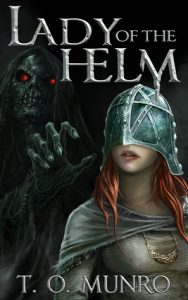 If you could co-write or co-create a series (like The Expanse, or the Malazan Book of the Fallen), who would you choose to work with and why?
If you could co-write or co-create a series (like The Expanse, or the Malazan Book of the Fallen), who would you choose to work with and why?
I’m sure I’d be terrible at collaborative writing. Too much of a control freak and too anxious about whether the quality of my own writing would match up – and I think you have to work with someone who is good at that way of working.
But I think for the sheer quirky creativity of his worlds and the distinctive voice in his writing I’d love to work with Peter Newman. (Also as the plot-doctor at a Bristolcon session a few years ago he help me straighten out the idea for a near contemporary dystopian world story, so much so that my daughter was desperate for me to flesh it out into a full story. So yeah – maybe he could help go one step further and we could actually write the thing.)
What’s the most (and/or least) helpful piece of writing advice you’ve ever received?
The writing advice I like best is the kind that’s delivered with tongue in cheek anecdotes, such as Michael Legat’s Dear Author – letters from a frustrated publisher to a variety of deluded would-be clients.
The kind I like least is the kind I got as a teenager from my mother, who I think simply couldn’t engage with my writing. She just mechanically corrected the punctuation, when I yearned (and still yearn) for feedback on the story and the characters. Who, now, when they read their edited documents doesn’t crave the marginal comments far more than the still-essential scything through commas?
If you could visit any country at any point in history, where/when would you go, and why?
Visit? So I can get back, you know, to all the healthcare, civilisation and pizza that we have grown to know and love. Tough one to call because all of history is so fascinating.
But hey, no, actually it’s easy. I would go back to about 500 AD in the land that would become England – the age of Arthur and try and discover the truth about that legendary bastard. This Romano-Briton, leader of battles, more general than king, a person we hope existed based only on shadows he threw rather than imprints he left.
Gildas and Nennius gave us such tiny tantalising glimpses of him, threads of a life from which so many writers have woven such complex tapestries. (btw I like Bernard Cornwell’s interpretation best with The Winter King – coming up this year as a Hive read!)
It is indeed! Every writer encounters stumbling blocks, be it a difficult chapter, challenging subject matter or just starting a new project. How do you motivate yourself on days when you don’t want to write?
I guess I’d read other authors’ answers to this question. Really I’m clueless. I just end up blocked for ages.
I guess my best approach (as a plotter) is to do my plotting and research, to work out the shape of the story and then break it down to elements, to scenes, and to block out the scenes, pick snatches of dialogue, and gradually swirl closer and closer in (like one of those coins rolling around a spiral charity collection bowl) until I find I have fallen into actually writing the thing.
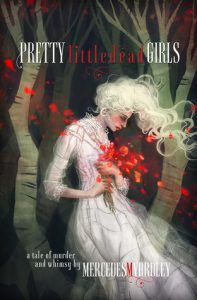 Tell us about a book that’s excellent, but underappreciated or obscure.
Tell us about a book that’s excellent, but underappreciated or obscure.
I would say Pretty Little Dead Girls, by Mercedes M Yardley – it’s a bit off the fantasy trail, a premise of a girl who is doomed by fate to die young by being horribly murdered – a fate she knows and everyone around her knows. From such an impossible premise, Yardley builds a short but incredibly joyful quirky book that I have re-read four times already.
Finally, would you be so kind as to dazzle us with what we like to call a ‘shark elevator pitch’? (It’s exactly the same as an elevator pitch, but with sharks.) (Well, one shark. Which, by the way, is currently picking between its rows of teeth to try and dislodge the remains of the last author who stepped onto its elevator.)
Ahem. So: why should readers check out your work? A shark elevator pitch of your own book(s) in no more than three sentences – go!
The Bloodline trilogy is led by thoughtful and empowered female characters – women with agency and independence who pursue a twisting and creative plot. All this set within an epic fantasy setting that, despite its traditional elements, still manages to be decidedly different. And it has a medusa – who else can say that?
Who else, indeed? Thanks for joining us, T.O.!
T.O. Munro is the author of the Bloodline trilogy, available now.
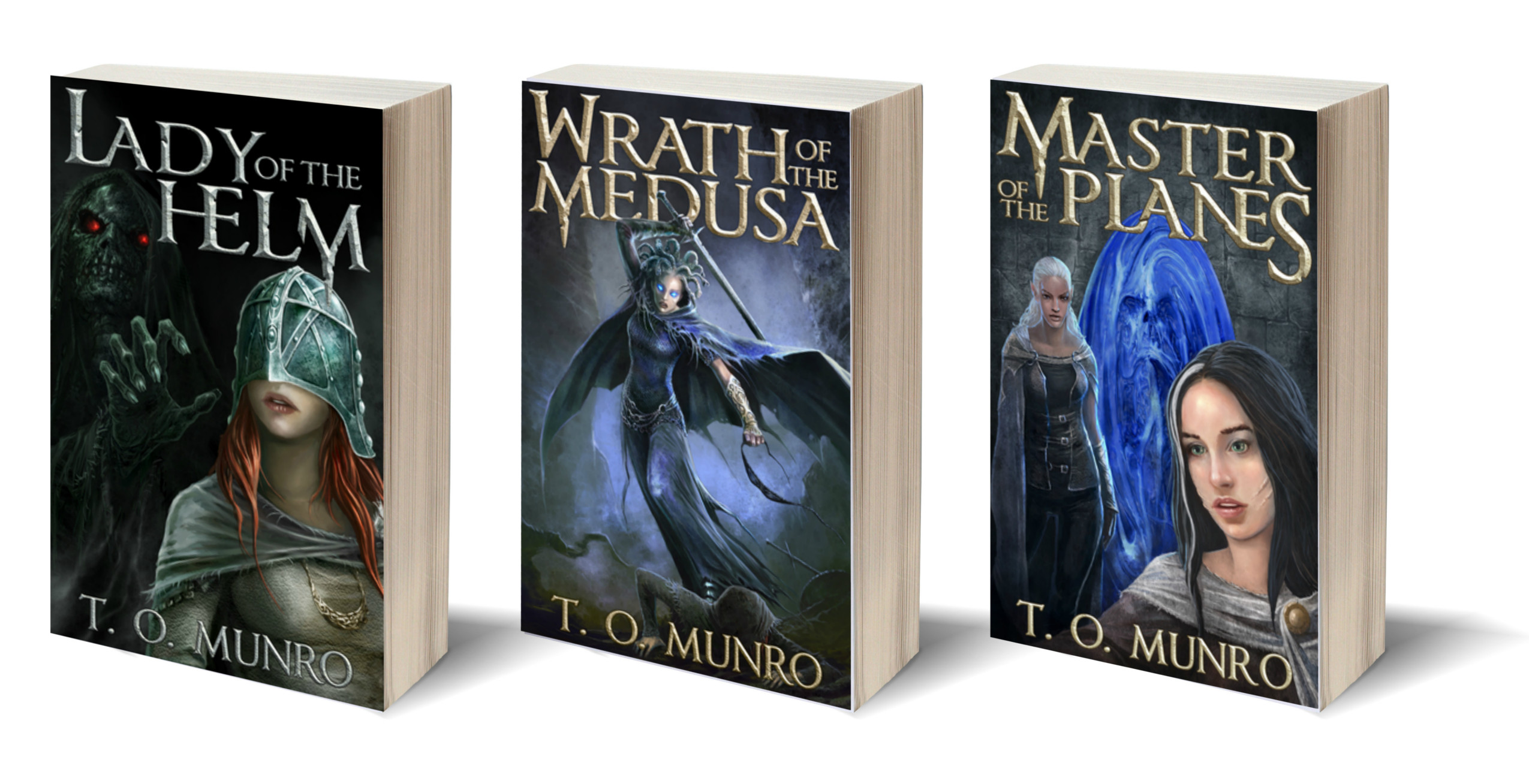


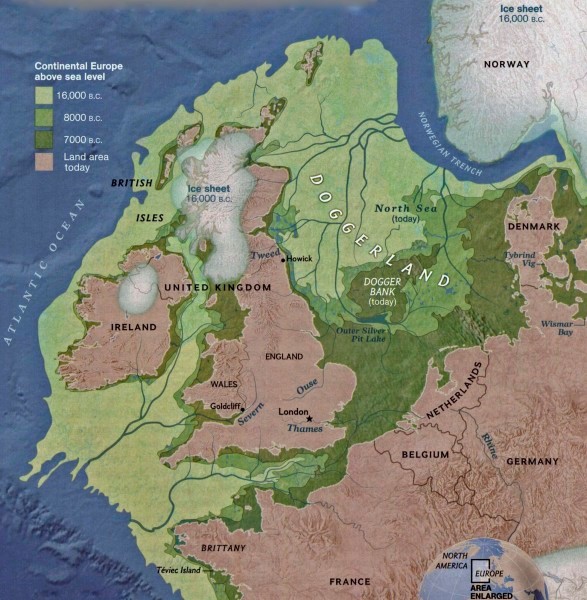
Got me to pick up a copy of the first one. I am intrigued. 🙂
Kitty G